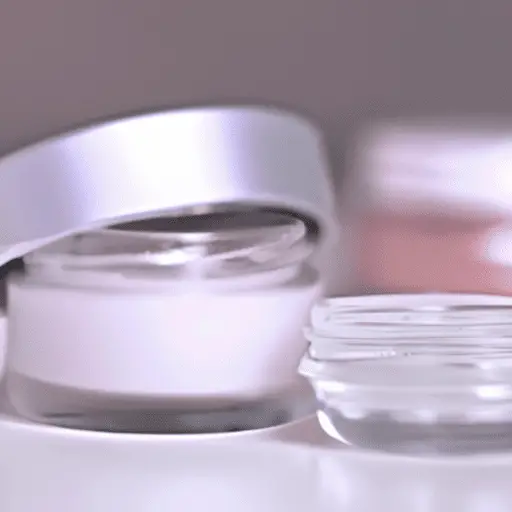-
Table of Contents
- Understanding the Benefits of Peptides in Skincare
- Key Takeaways
- Introduction: The Power of Peptides in Skincare
- The Science Behind Peptides
- Benefits of Peptides in Skincare
- Potential Side Effects and Recommended Usage
- FAQ Section
- 1. Can peptides replace my regular skincare products?
- 2. How long does it take to see results from using peptides?
- 3. Are there any risks associated with using peptides?
- 4. Can I use peptides if I have sensitive skin?
- 5. Are all peptide products the same?
- Conclusion: The Power of Peptides
- Key Takeaways
Understanding the Benefits of Peptides in Skincare

[youtubomatic_search]
Key Takeaways
- Peptides are short chains of amino acids that act as building blocks of proteins such as collagen, elastin, and keratin.
- They play a crucial role in skin health, promoting elasticity, firmness, and overall skin rejuvenation.
- Peptides in skincare products can help reduce the appearance of wrinkles, fine lines, and improve skin texture.
- While generally safe, some people may experience side effects such as skin irritation and sensitivity.
- It’s essential to use peptide-based skincare products as directed by the manufacturer or a skincare professional.
Introduction: The Power of Peptides in Skincare
Peptides have emerged as a buzzword in the skincare industry, promising a range of benefits from anti-aging to skin firming. But what exactly are peptides, and how do they work? This article delves into the science behind peptides and their role in skincare, backed by research and expert insights.
The Science Behind Peptides
Peptides are short chains of amino acids, the building blocks of proteins. In the skin, peptides are part of the structure of collagen, elastin, and keratin – proteins that maintain the skin’s texture, strength, and resilience. As we age, the production of these proteins decreases, leading to wrinkles, sagging, and other signs of aging.
According to a study published in the Journal of Cosmetic Dermatology, topical application of peptides can stimulate collagen production, helping to restore the skin’s youthful appearance. The study found that participants who used a peptide-based cream for 12 weeks experienced a significant reduction in wrinkle depth and overall skin roughness.
Benefits of Peptides in Skincare
Peptides offer numerous benefits for skin health and rejuvenation. Here are some of the key advantages:
- Anti-Aging: By boosting collagen production, peptides can help reduce the appearance of fine lines and wrinkles. A study in the International Journal of Cosmetic Science found that a peptide serum improved skin elasticity by 40% after just two months of use.
- Skin Firming: Peptides can improve skin firmness by promoting elastin production. Elastin helps the skin bounce back after being stretched, maintaining its firm and youthful appearance.
- Skin Repair: Some peptides, known as copper peptides, have been shown to promote wound healing and skin repair. A study in the Journal of Wound Care found that copper peptides significantly accelerated wound healing in patients with chronic wounds.
Potential Side Effects and Recommended Usage
While peptides are generally safe for most people, some may experience side effects such as skin irritation and sensitivity. It’s essential to patch test any new skincare product before full application to avoid adverse reactions.
As for usage, most skincare professionals recommend applying peptide-based products once or twice daily. However, it’s always best to follow the manufacturer’s instructions or consult with a skincare professional for personalized advice.
FAQ Section
1. Can peptides replace my regular skincare products?
No, peptides are not a replacement for your regular skincare routine but rather an addition to it. They work best when used in conjunction with other skincare ingredients like antioxidants and retinoids.
2. How long does it take to see results from using peptides?
Results can vary depending on the individual and the specific product used. However, most people start to see improvements in skin texture and firmness within 4-12 weeks of consistent use.
3. Are there any risks associated with using peptides?
Peptides are generally safe for most people. However, some may experience side effects such as skin irritation and sensitivity. Always patch test new products and consult with a skincare professional if you have any concerns.
4. Can I use peptides if I have sensitive skin?
Yes, peptides are generally well-tolerated by all skin types, including sensitive skin. However, it’s always best to patch test new products to ensure they don’t cause irritation.
5. Are all peptide products the same?
No, not all peptide products are created equal. The effectiveness of a peptide product depends on its formulation, the type of peptides used, and their concentration in the product. Always choose high-quality products from reputable brands for the best results.
Conclusion: The Power of Peptides
Peptides are a powerful addition to any skincare routine, offering a range of benefits from anti-aging to skin firming. While they’re generally safe for most people, it’s essential to use them as directed and consult with a skincare professional for personalized advice. With their ability to boost collagen and elastin production, peptides can help maintain the skin’s youthful appearance and resilience, making them a worthy investment for skin health.
Key Takeaways
- Peptides are short chains of amino acids that play a crucial role in skin health.
- They can help reduce the appearance of wrinkles, fine lines, and improve skin texture.
- While generally safe, some people may experience side effects such as skin irritation and sensitivity.
- It’s essential to use peptide-based skincare products as directed for the best results.
- Peptides are a powerful addition to any skincare routine, offering a range of benefits from anti-aging to skin firming.
[youtubomatic_search]

Leave a Reply